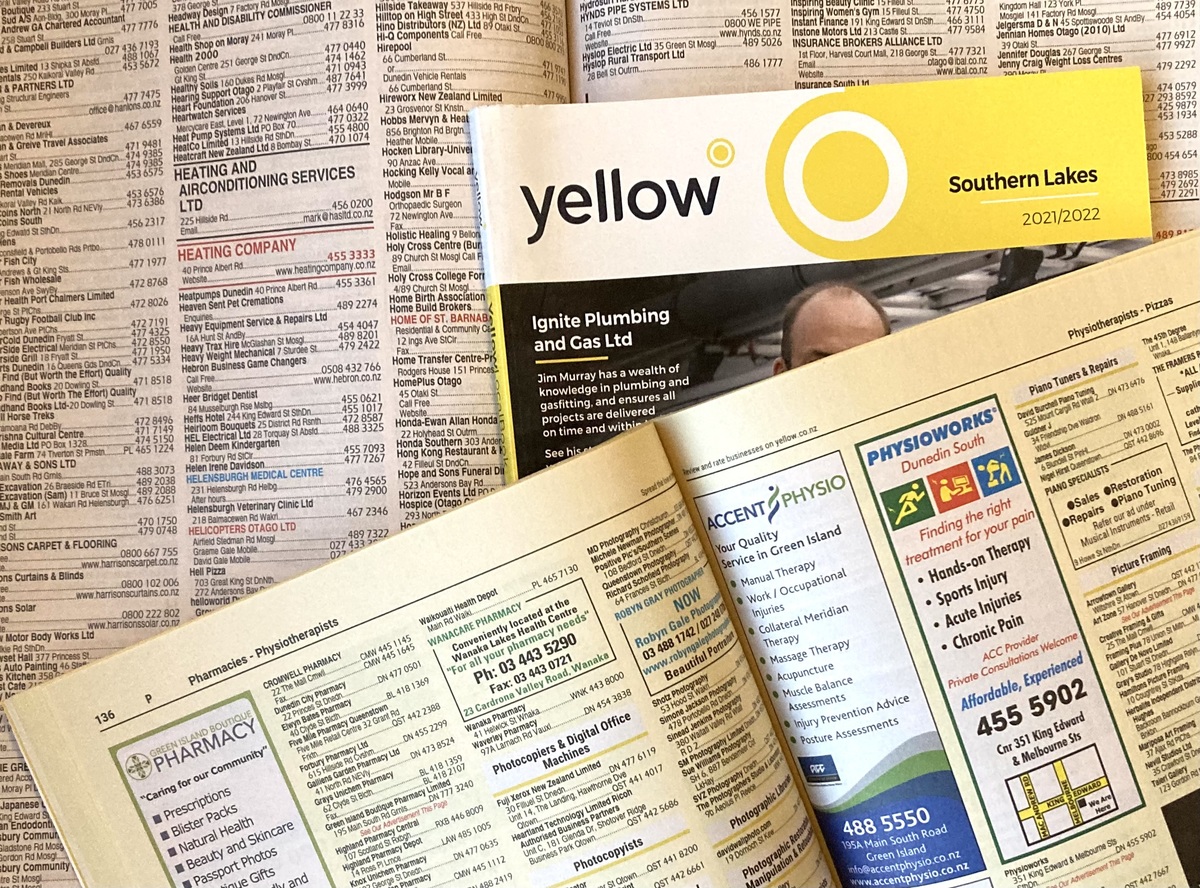Yellow Pages defends waste accusations
Sue Wards
29 May 2022, 6:00 PM
 A Wānaka councillor says 12,900 copies of the Yellow Pages is wasteful for a population of 16,000 residents.
A Wānaka councillor says 12,900 copies of the Yellow Pages is wasteful for a population of 16,000 residents.More than 12,920 Yellow Pages have been delivered to the Wānaka area this year, but Wānaka ward councillor Quentin Smith says the books have “no place in 2022”.
Yellow NZ (formerly Yellow Pages) has supplied local business information for more than 60 years, initially with a physical directory and now including digital marketing.
Quentin told the Wānaka App he was angry when he received a copy of the Yellow Pages in the mail this year, the fourth year he has opted out of the delivery - and the fourth time the book still arrived.
“While I expect there is a very small percentage of the population that may like and use it, for 99 percent of us it is purely wasteful and corporately irresponsible,” he said.
“Almost all of them must go straight from the letter box to the recycling bin.”
Quentin said he has not used the Yellow Pages for at least 15 years, as he uses a phone or computer to search for services or suppliers.
Wānaka Wastebusters communications advisor Gina Dempster said it was “completely wasteful” for the physical Yellow Pages to be delivered to anyone who doesn’t use it, “which is likely most households these days who have a computer or a phone”.
“We’ve heard of other people trying to opt-out year after year with no success, and it's just ridiculous that it's so hard to do. Yellow Pages has to take responsibility for the waste they’re creating by fixing their opt-out and ensuring that it’s widely known that you have the option of not receiving the physical copy.”
Showponi CEO Gordy Bayne, who manages PR for the Yellow Group, said the business delivers 12,920 books to Wānaka and there are 766 ‘opt-outs’ in the area.
“Unfortunately there are instances just by way of human error that we appreciate we will have instances of ‘one off delivery’ to an opt out address and of course we ensure that we pick up that book and reconfirm that in our system.”
He offered to investigate Quentin’s Yellow Pages delivery to ensure his ‘opt out’ had been recorded correctly.
The Yellow Group appreciates that not everyone is online, Gordy said, adding there “are many parts of the country and many demographics of people who either choose not to connect to the internet, or simply don’t have the capability”.
“The physical books are still very much in use, not just for older demographics, but also in the regions, where they’re still a viable marketing platform for small businesses. The books are still the best way to reach rural customers and are effective where internet speeds are nowhere near as fast as they are in metro cities.”
Gordy said the business is focused on its print footprint and paper reduction, citing the business increasing book height, and a lighter newsprint stock which will mean an estimated 192 tonnes less newsprint this year. He said 10,720 of the books delivered to Wānaka did not have flow wrap.
Quentin questioned why more than 12,000 books would be necessary for a population of 16,000 residents, as it indicated far more than one per household was being supplied.
He suggested that fewer than 1,000 copies, available as required from the Post Shop, “would be more than sufficient”.
“The suggestion that changing the paper type or not wrapping them in plastic is fundamentally missing the point. It’s time for this to stop, it has no place in 2022,” he said.
Gordy said a QR code had been added to the Yellow Pages cover to make it easier to opt out of receiving the book next year.
PHOTO: Wānaka App




